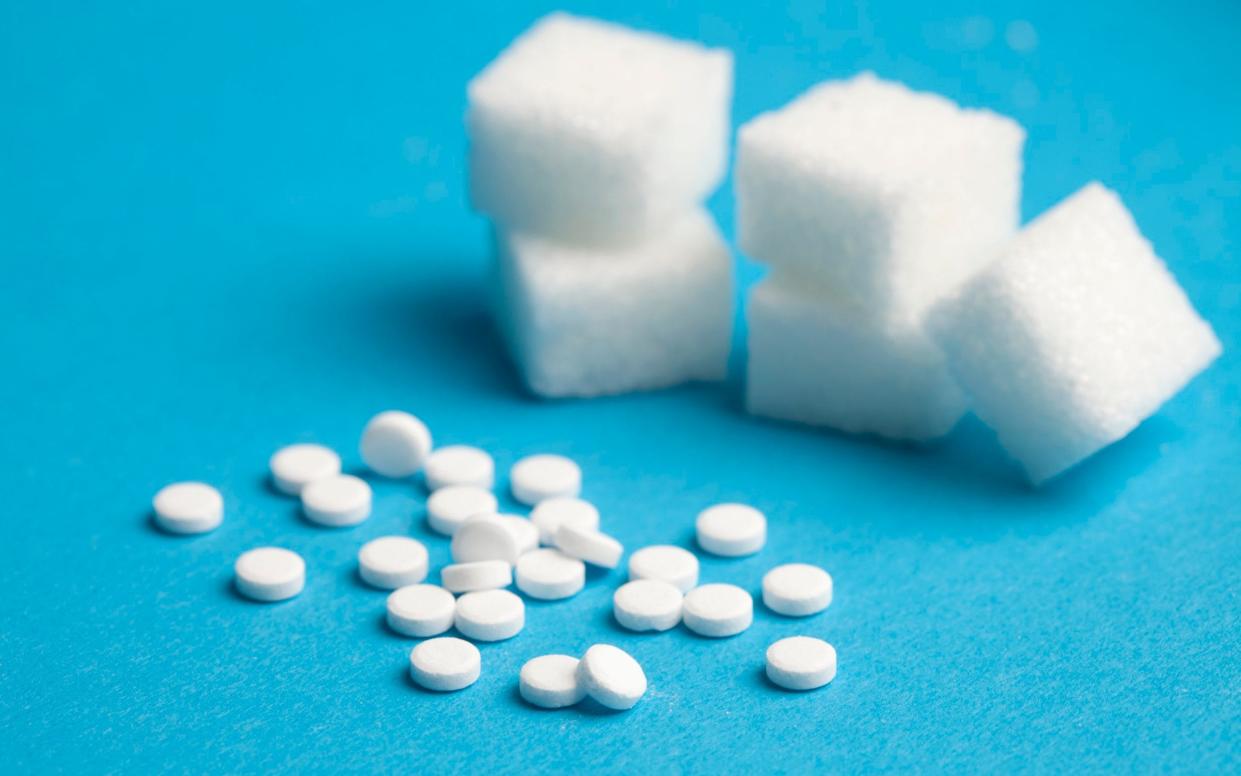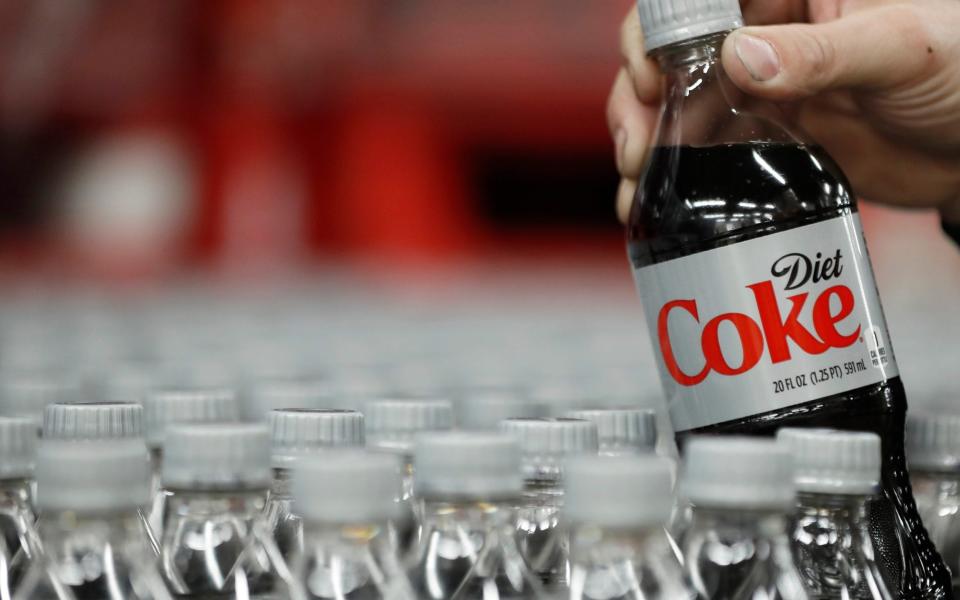Are artificial sweeteners really any better than sugar?

In an age where sugar is demonised, we often think of the sugar-free alternatives as the healthier option for guilt-free sweetness, with many of us using them to save our teeth and our waistlines. Sales are certainly booming – last year the global sweetener market was valued at more than $2 billion, as it finds its way into more and more of our foods.
Earlier this month however, a zero-calorie sweetener called erythritol, often used as a sugar substitute or added to fizzy drinks and cookies, was linked to a higher risk of heart attacks. Researchers from the Cleveland Clinic Lerner Research Institute found that patients with the highest levels of erythritol in their blood were twice as likely to have a heart attack or stroke.
The researchers also found the sweetener appeared to have blood-clotting properties. “Erythritol levels in blood were found to be associated with thrombosis [clotting] risks and functional studies show erythritol enhances platelet reactivity,” explained cardiologist and study co-author Dr Stanley Hazen, who said further research is needed.
A British Dietetic Association spokesperson Marcela Fiuza suggests that it’s too soon to draw conclusions, as the study was small (eight people) and purely observational. “Erythritol is produced endogenously (in the body) from glucose and people with existing heart problems may produce more erythritol than healthy people,” says Fiuza. “It is just as likely that cardiovascular disease is causing raised levels of erythritol, as erythritol is causing heart attacks.”
But it’s far from the first time artificial sweeteners have been linked to health issues and not just heart disease, but also cancer, diabetes and even weight gain.

In 2022, a study published in the British Medical Journal linked regular consumption of some artificial sweeteners with a higher risk of heart disease, with the study’s authors noting that artificial sweeteners “should not be considered a healthy and safe alternative to sugar”. The British Heart Foundation, however, said that observational studies only show a link, and more research is needed.
Meanwhile, in 2022 scientists from the French National Institute for Health and Medical Research, and Sorbonne Paris Nord University, studied the diet of 100,000 people over an eight-year period and concluded those who consume large quantities of artificial sweeteners, particularly aspartame and acesulfame-K (found in diet drinks and ice cream), had a higher risk of cancer. But they also acknowledged their research needed further investigation and, according to Cancer Research UK and the NHS, sweeteners do not cause cancer.
Our microbiome (the bacteria in the gut) might also pay the price for calorie-free sweeteners, as scientists have recently begun to question whether sweeteners can alter gut bacteria, which can affect everything from emotional health to weight gain.
Leading gut-health expert, Prof Tim Spector has tweeted that artificial sweeteners “need a health warning”. The professor of genetic epidemiology at King’s College London and author of Food For Life: The New Science of Eating Well began researching artificial sweeteners, suspecting they weren’t actually helping people lose weight, despite being calorie-free.

Researchers from the Weizmann Institute of Science in Israel confirmed Prof Spector’s suspicions when they found that while two of the sweeteners (aspartame and stevia) did not have a significant affect on blood-sugar levels, sucralose and saccharin raised them. They also found all four sweeteners altered the microbiome in ways associated with high blood-sugar levels, which Prof Spector believes proves his claim that sweeteners are not metabolically “inert”, as commonly believed. “We know artificial sweeteners are not inert and can affect gut microbes and do not help weight loss,” he tweeted.
Yet another study from the Weizmann Institute found sweeteners can change the function and composition of the gut microbiome in a way that affects metabolic health, with the study authors advising that, “overconsuming them is probably not a good idea for optimal gut health”.
This adds to a growing body of research, with a 2021 study from the Keck School of Medicine at the University of Southern California, showing that drinks containing sucralose may actually increase appetite and food cravings, particularly in women and obese adults. “There is controversy surrounding the use of artificial sweeteners because a lot of people are using them for weight loss,” said study author Kathleen Page. “While some studies suggest they might be helpful, others show they may be contributing to weight gain, type two diabetes and other metabolic disorders.”
So should we ditch the zero calorie options and go “full-fat” Coke instead? “Ideally we would swap our full sugar Coke for water,” says Fiuza. “But this might not be a realistic approach for many people. It is a controversial topic, but based on available evidence, given the choice I would choose an artificially sweetened drink over a full sugar one.”

 Yahoo News
Yahoo News 
